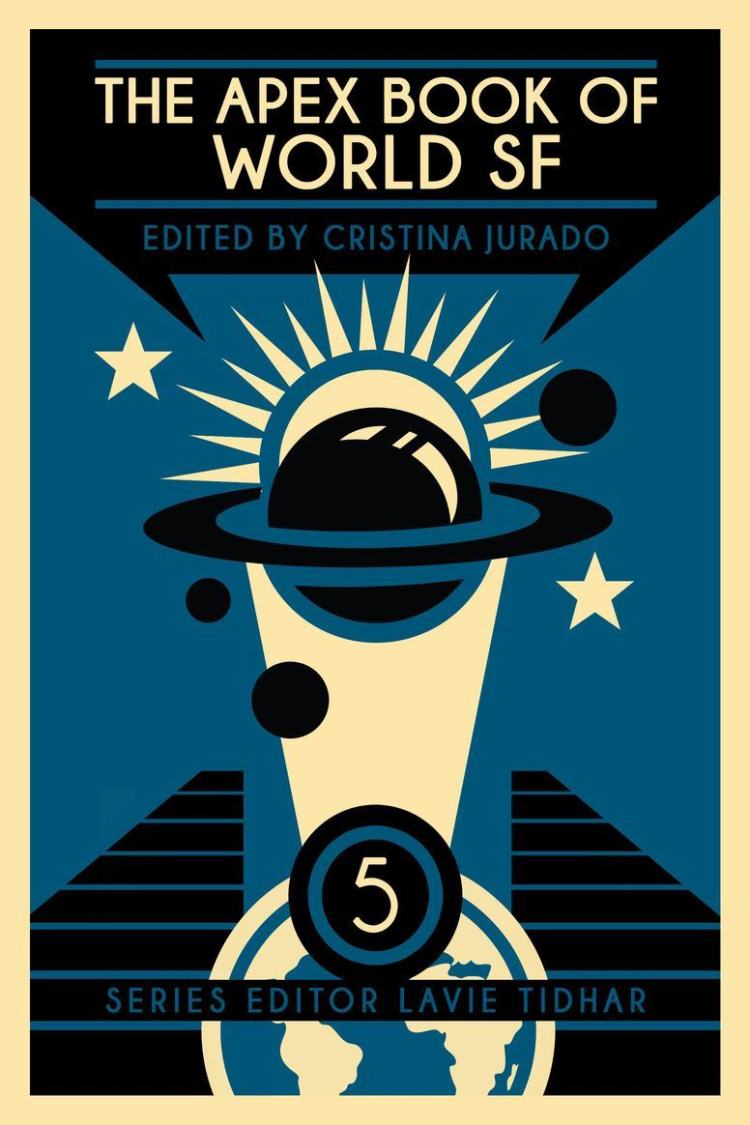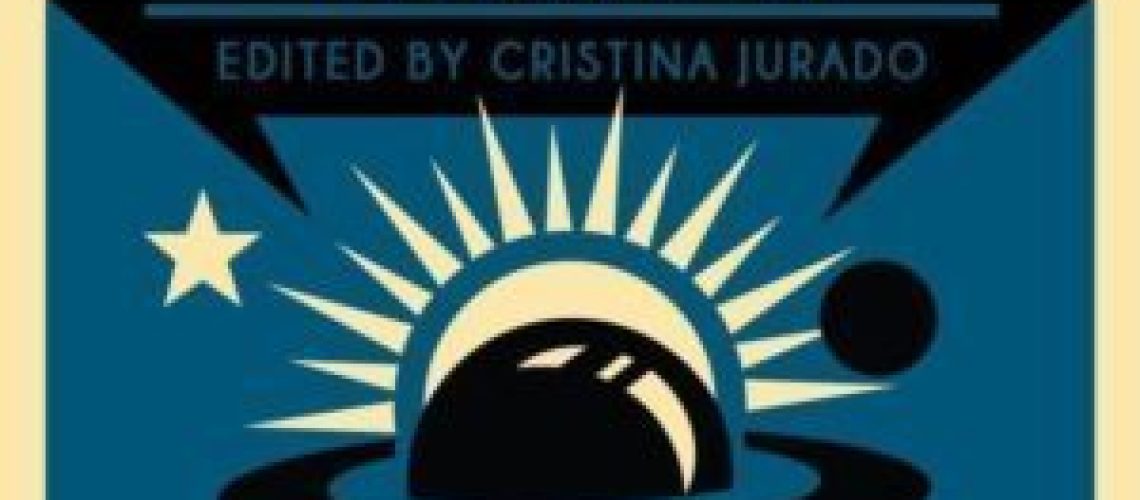“Imagination,” says Cristina Jurado, editor of this fifth edition of The Apex Book of World SF, “recognizes any language while walking on the paths of all nations.” In no genre is this more evident than in science fiction, and in no anthology series is it so vividly realized as in this ongoing project, originally developed by Lavie Tidhar, showcasing short fiction from authors around the world.

Volume Five collects cyberpunk, zombie tales, space adventures and re-imaginings of several different cultures’ mythologies, and features authors, some writing in English and some translated, from Singapore, Cuba, the Apache Nation, Zimbabwe, Japan, India, Egypt, Bolivia, South Korea, Spain, Lebanon, China, Venezuela, Germany, the Philippines, the United States, Trinidad and Tobago, and Italy. Some of the authors are well-established with published novels under their belts, some are newer on the scene. All are extraordinary.
That being said, of course there are some standouts. My personal favorite and a story I’d consider it worth the price of the entire anthology to have to read, chortle over and read again is Vina Jie-Min Prasad’s “A Series of Steaks,” a piece of slapstick cyberpunk extrapolating the current state of 3-D printing into a world in which that technology can be used to manufacture food. A luxury market for the provably real — steak from actual cows, for instance — has evolved. And where there are luxury markets, there are markets for knock-offs. Lovers of hoaxes and hoaxers will crow with delight over this one, but caveat lector: it might make you hungry.
If you’re in the mood for something deeper, you could do worse than Darcie Little Badger’s “Nkasht Ii” in which the narrator is a “karma busker”, spending days with her friend Annie next to a hand-lettered sign that says “Tell us your problems, tell us your stories, we love to listen.” When the pair meet a distraught father who lost his daughter in a car crash but has an unbelievable account of a supernatural figure encountered in that crash, Annie reveals at last the nature of the bargain between them and the next world, a bargain that requires Annie to intervene in such matters at the peril of her own life. This one puts the reader through quite an emotional wringer in just a few pages.
Similar themes in a different setting color T.L. Huchu’s “Ghostalker” in which a pop-culture-obsessed young woman operates a sort of messenger service for the random ghosts she encounters on the street — another riff on the busking theme, except the music our hero plays on her mbira isn’t to entertain passersby but to clarify ghosts’ identities and desires. Like many of the stories in this collection, the sense of place — rural Zimbabwe — is as powerful as the ideas it plays with. When our heroine discovers the true nature of a particular ghost that’s been relentlessly stalking her for her entire career — WOW.
You code monkeys have a special treat waiting for you in this anthology, too, in the form of Taiyo Fujii’s “Violation of the Truenet Security Act.” One of your own, whose skill set was made obsolete by the development of quantum computing and an incident in which rogue AIs took away the internet from mere humans, is called upon to rescue an orphaned creation of his that has become mysteriously relevant in the new age. This story gets technical really fast, and that’s why I think the code monkeys will appreciate it a bit more than I did — but I loved it anyway.
Less earthbound in every sense is Liliana Colanzi’s “Our Dead World” (translated from the Spanish by Jessica Sequeira). A woman living a life reminiscent of those of the hovel dwellers in Philip K. Dick’s The Three Stigmata of Palmer Eldritch has made the one-way migration to Mars but is still haunted by memories of home. “Each of us, in his own way, continued to orbit the Earth, satellites eternally circling what had been lost.” It’s not a cheerful perspective on space colonization, but it rings bitterly true, grounded in the protagonist’s emotions and set free by her probable hallucinations.
You’ll also not want to miss Bo-Young Kim’s “An Evolutionary Myth” (translated from the Korean by Jihyun Park and Gord Sellar). The title is self-explanatory, the tone fantastic and a little hallucinatory; the story itself at turns beautiful and sad and creepy. The experience of reading it is, again, worth the purchase price of the entire anthology! And I don’t want to spoil it anymore for you.
So as it stands, this may be the most important anthology of recent years, after Iraq + 100 (reviewed late last year). If this would be your first volume of The Apex Book of World SF, you won’t want it to be your last. As a starting point for exploring other cultures’ perspectives on speculative fiction, they can’t be beat; as a quick way to find a bunch of new-to-you writers to follow, they’re a must-have. How fortunate that there are four more — some of which may contain writers who have gone on to fame already. See also Rachel Cordasco’s excellent podcast series on SF in Translation, right here at Skiffy and Fanty!
International SF is EXCITING, kids!








2 Responses